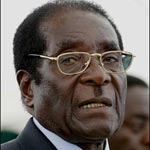
SECURITY chiefs are meeting behind the back of Prime Minister Morgan Tsvangirai, sources have said.
Report by Patrice Makova The revelations come amid fears that the disbanded Joint Operations Command (JOC) has revived its structures ahead of next year’s elections. President Robert Mugabe has not called National Security Council (NSC) meetings for almost five months now. But the NSC Act stipulates that the body should meet every month to receive reports and discuss key security issues. The council, which is chaired by Mugabe, is made up of Tsvangirai, the two vice-presidents — Joice Mujuru and John Nkomo. Other members are service chiefs, the two deputy prime ministers, Thokozani Khupe and Arthur Mutambara, ministers responsible for finance, the defence forces and the police, and one minister nominated by each of the three political parties in the Government of National Unity. Sources said although the NSC had not been meeting with Tsvangirai, security chiefs continued to meet with Mugabe on a regular basis. “The securocrats are keen to avoid meeting Tsvangirai until after elections because up to now they still have little respect for him,” said a source at Munhumutapa Building. “To them, Tsvangirai is a stumbling block to a win by Zanu PF, which they want achieved by any means possible.” The last time the NSC met to discuss escalating violence in the country, among other security issues, Tsvangirai reportedly confronted the service chiefs, accusing them of undermining his authority. Constitutional law expert, Lovemore Madhuku said failure to hold NSC meetings was indicative of the entire situation in the GNU, where everything evolved around Mugabe and members of his inner circle. “The real business of security is being discussed every week in the absence of Tsvangirai,” he said. “They never really wanted to involve him in dealing with security issues in the first place. The first NSC meetings were pretentions. You reach a stage where you cannot continue to pretend anymore, hence they are now openly snubbing Tsvangirai.” Greg Lennington, another constitutional expert at the University of Zimbabwe, said failure to hold NSC was a cause for concern. He said it was indicative of the tensions in the GNU, particularly as the country moves towards elections. Political scientist John Makumbe said it was clear that JOC was still meeting clandestinely, as the body was never abandoned. “We are heading for a real showdown because if Tsvangirai wins the next elections, JOC will still not allow him to assume power,” he said. Makumbe said the behaviour by the securocrats called for urgent need for security sector reforms and training of the military and police on handling human rights before elections were held. JOC was accused of spearheading a violent re-election campaign for Mugabe in the disputed 2008 Presidential election run-off. Tsvangirai’s spokesperson, Luke Tamborinyoka on Saturday said if JOC was indeed meeting, it would only be to further the agenda of Zanu PF. “All we want is for formal and recognised organs of the state, such as the National Security Council, to meet rather than any other informal bodies,” he said. Mugabe’s spokesperson, Ge-orge Charamba could not be reached for comment on Saturday as he was said to be with Mugabe in New York for the United Nations General Assembly meeting.
Zanu PF plotting to stall democratic reforms: Zamchiya
Crisis in Zimbabwe Coalition regional co-ordinator Phillan Zamchiya said it was now clear that the establishment of the NSC was a calculated move by Zanu PF to deflect attention and not a prelude to democratic institutional reform. “As things stand, the military can step in at any stage of the electoral cycle and work to hold back democratisation efforts,” he said. “The political disposition of the military elites as epitomised by their support for Zanu PF, presents an unpredictable wild card that can stall Zimbabwe’s transition. “The attempt to justify military intervention in politics by Zanu PF stalwarts because of the history of the liberation war is archaic, to say the least.”









